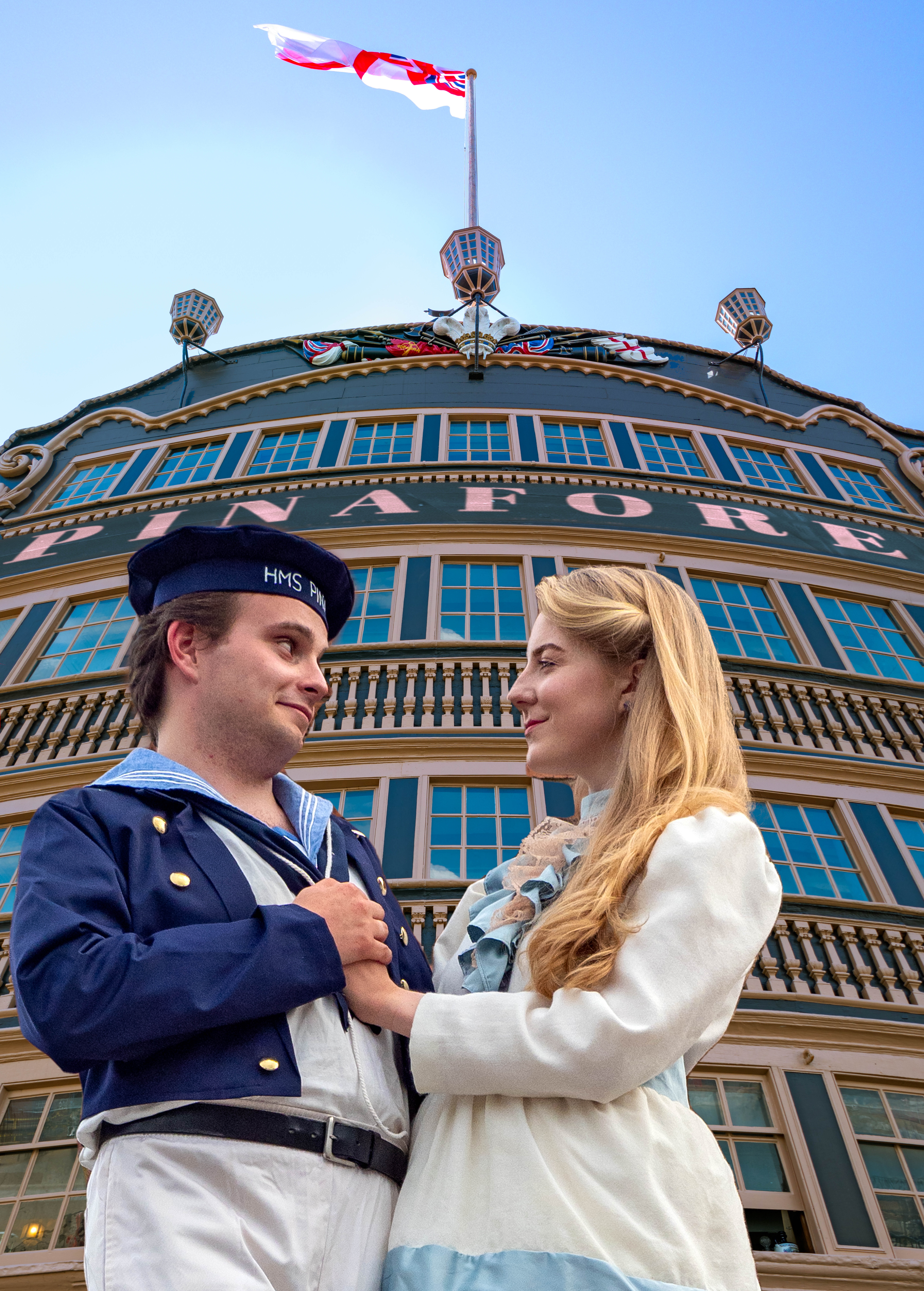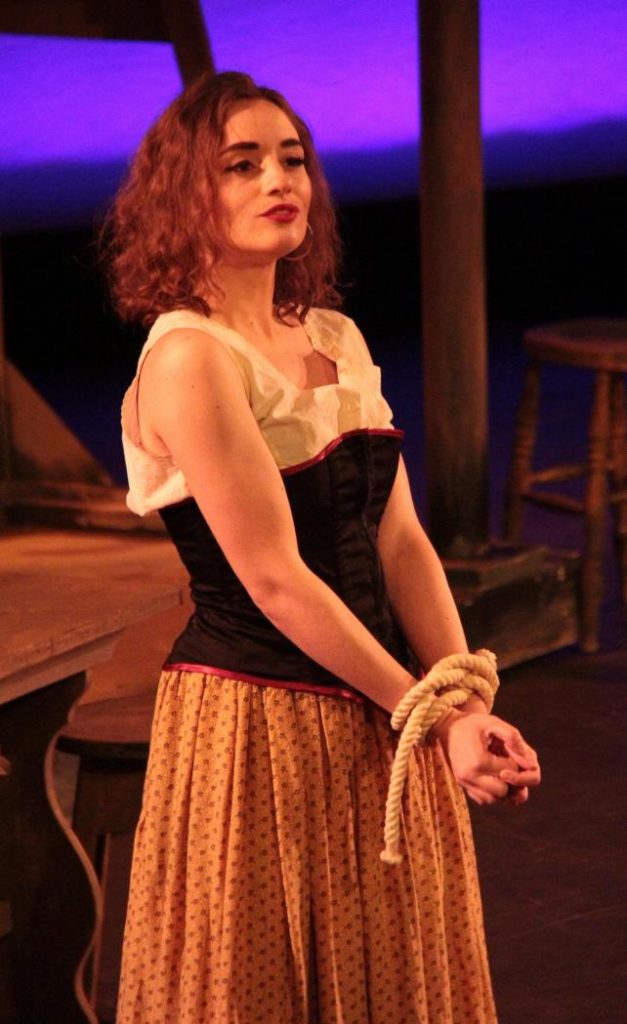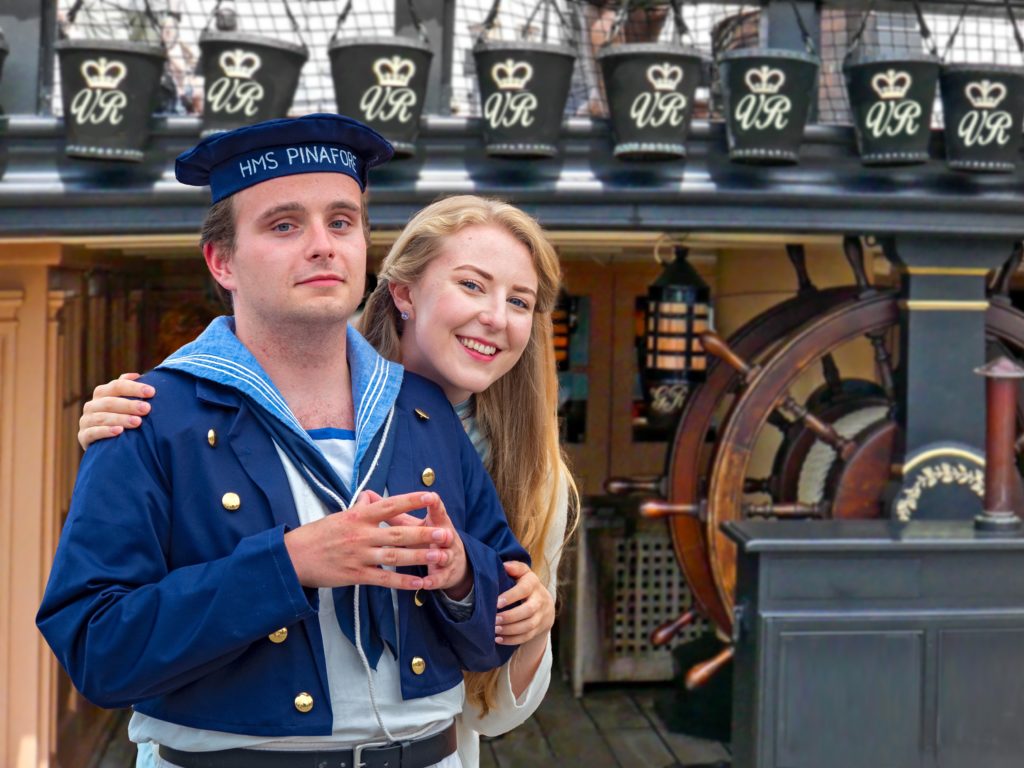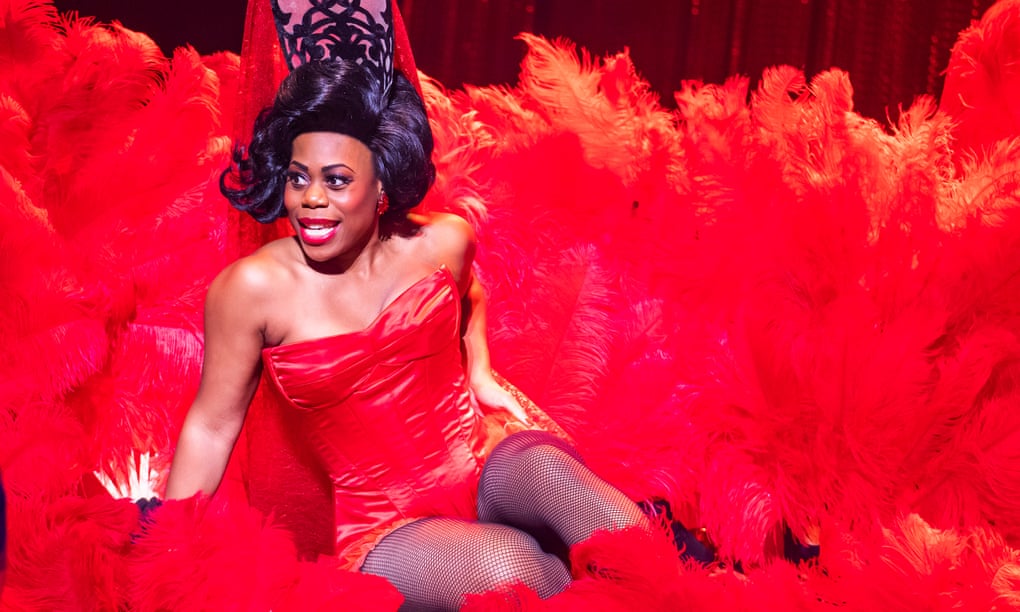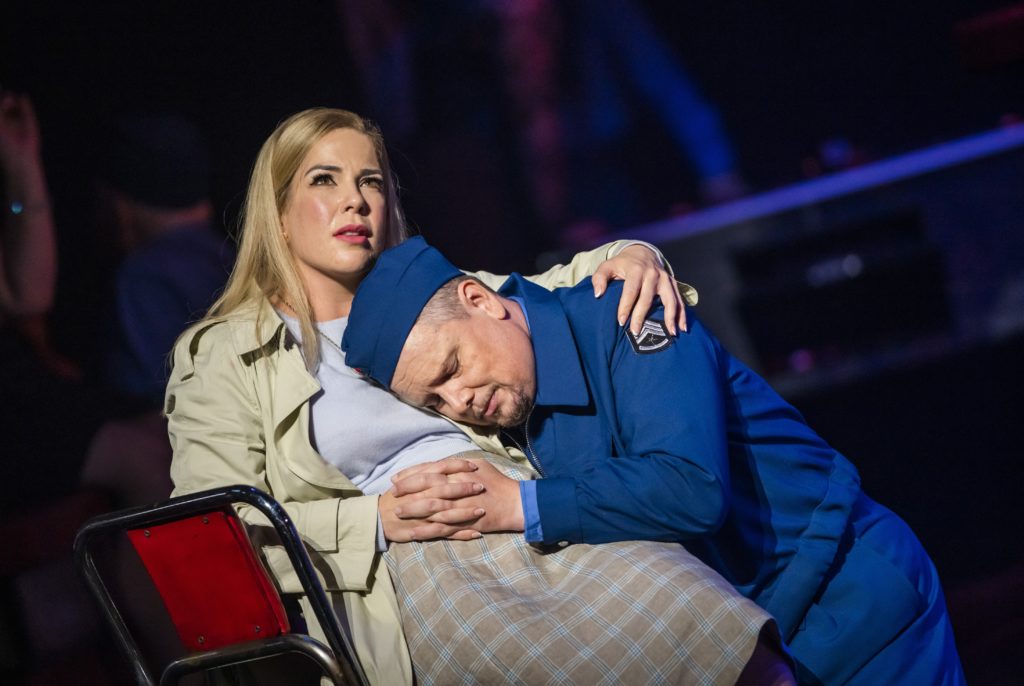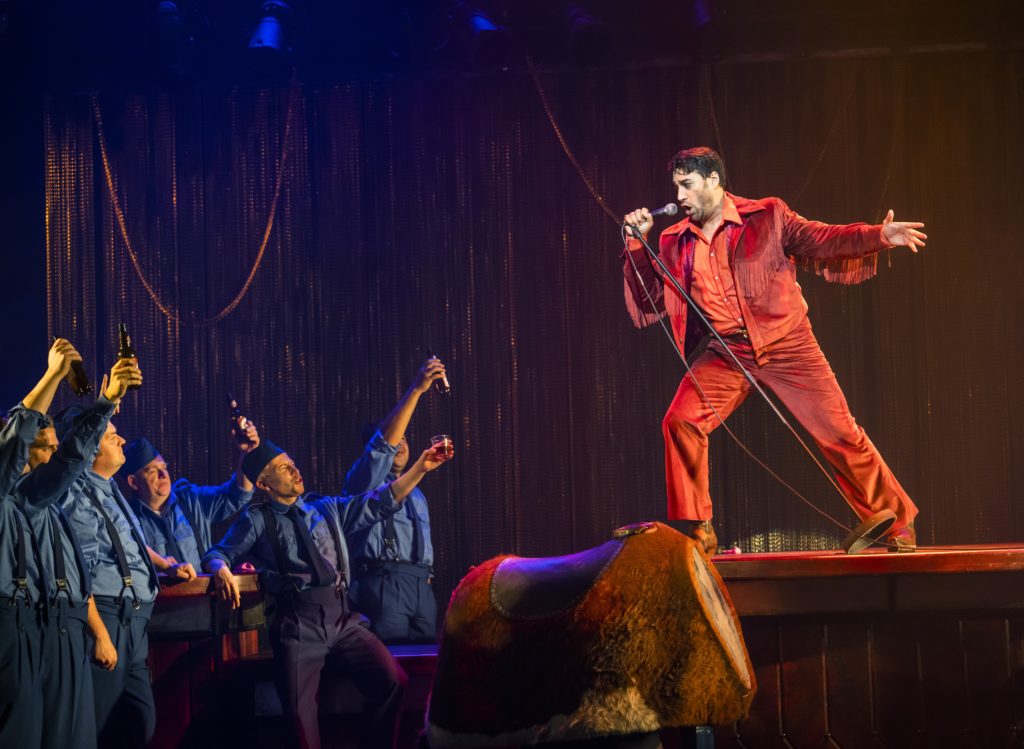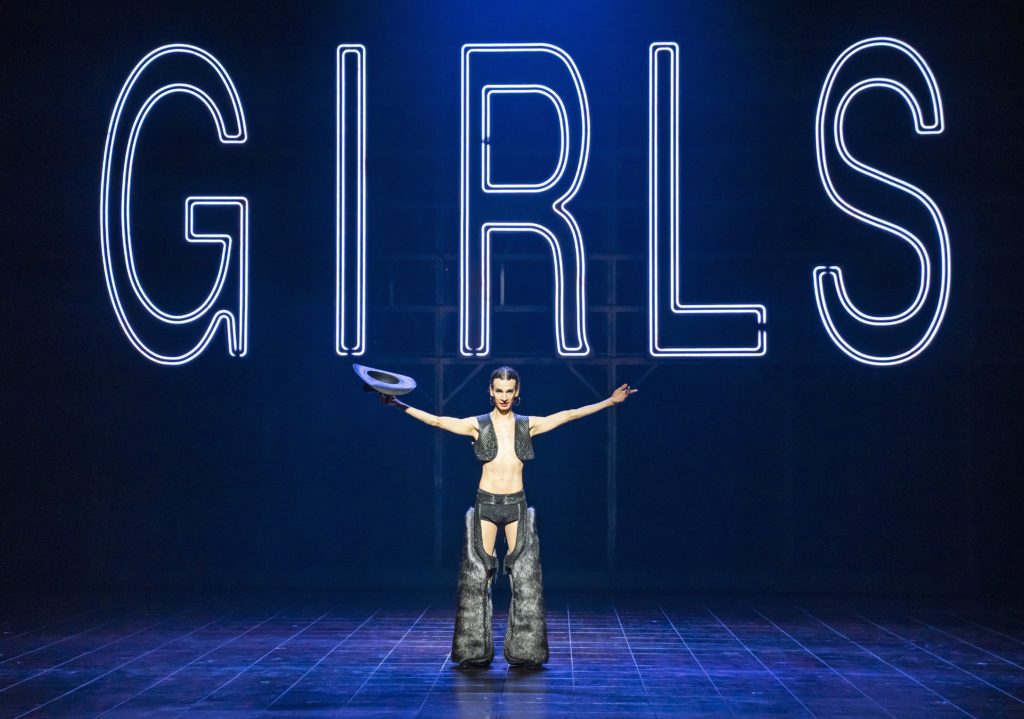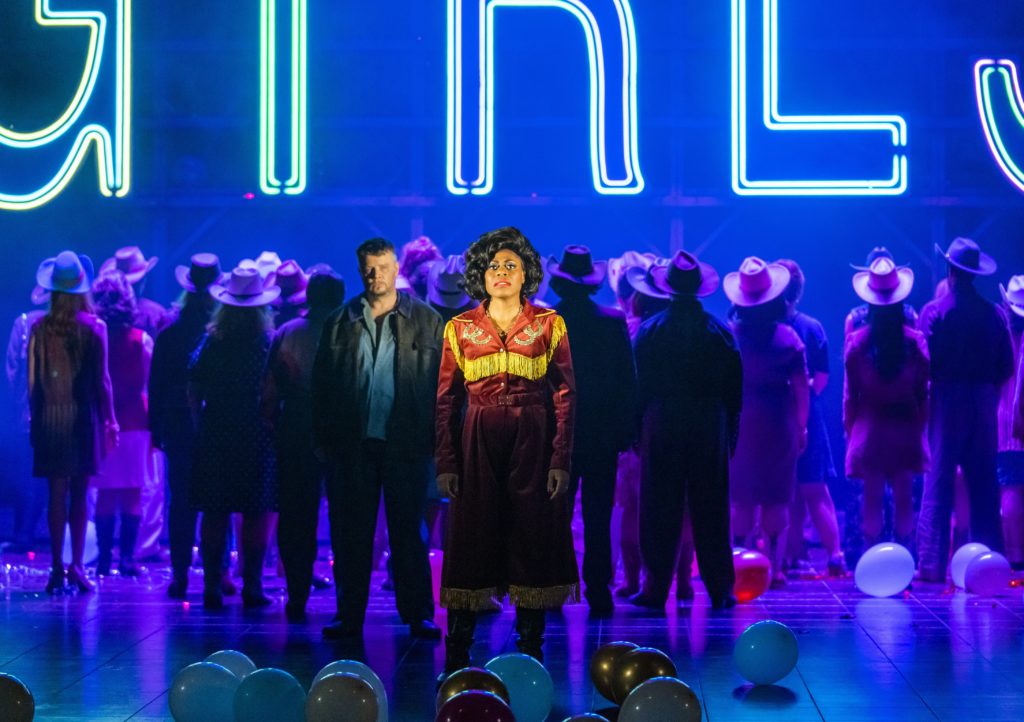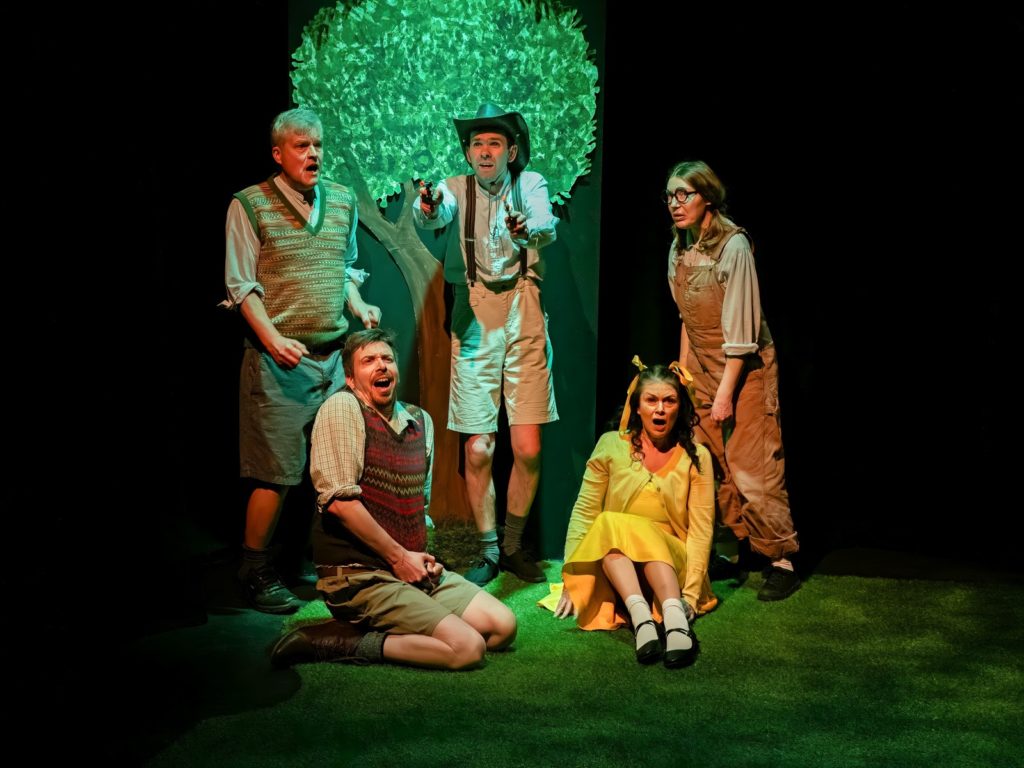
Child’s play: Andrew Renn, Jon Cook and Jess Murray, back row, with Mark Simmonds and Victoria Delaney in York Settlement Community Players’ Blue Remembered Hills. Picture: John Saunders
FROM Dennis Potter to Stephen Sondheim, showman P.T. Barnum to Selby Abbey’s light installation, Charles Hutchinson is spoilt for cultural choice.
Play of the week: York Settlement Community Players in Blue Remembered Hills, York Theatre Royal Studio, until February 28, 7.45pm nightly, except Sunday and Monday, plus 2pm Saturday matinees
FLEUR Hebditch, former Stephen Joseph Theatre dramaturg for a decade, makes her Settlement Players directorial debut with Dennis Potter’s stage adaptation of his 1979 BBC Play For Today drama.
Seven children are playing in the Forest of Dean countryside on a hot summer’s day in 1943. Each aged seven, they mimic and reflect the adult world at war around them, but their innocence is short lived as reality hits. Box office: 01904 623568 or yorktheatreroyal.co.uk.
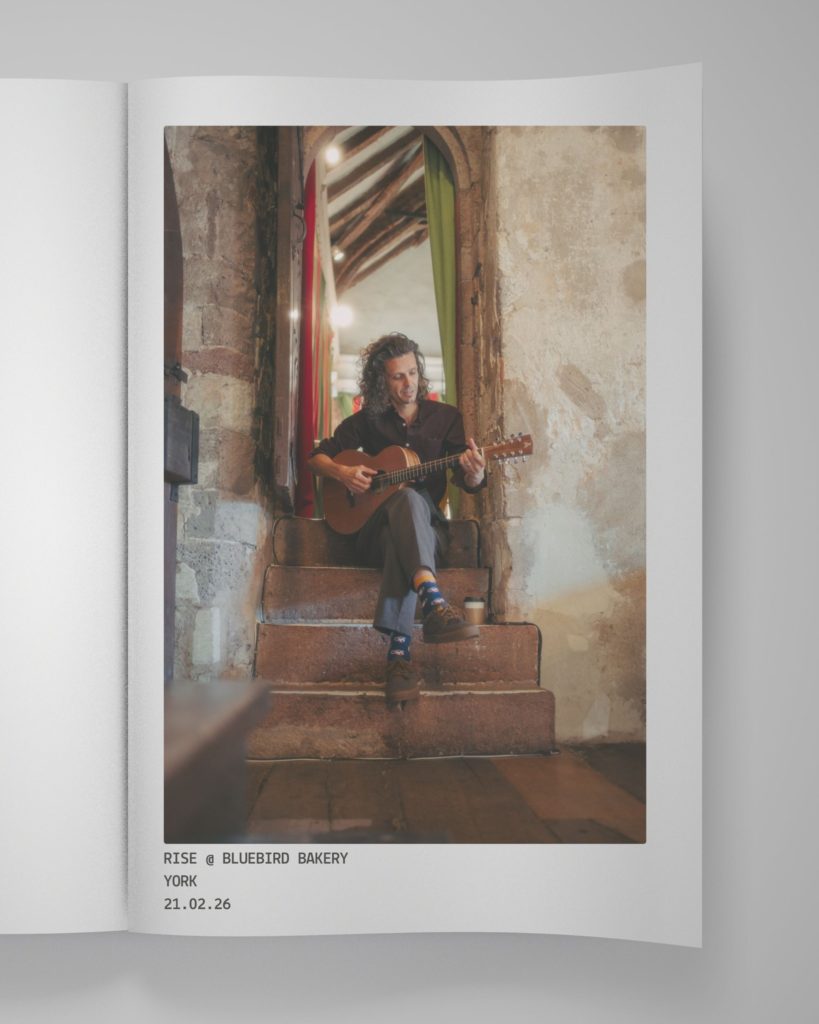
Cole Stacey’s social media posting for his Rise@Bluebird Bakery gig
Folk gig of the week: Cole Stacey, Rise@Bluebird Bakery, Acomb, York tonight, doors 7.30pm
VISCERAL singer-songwriter Cole Stacey weaves together British folk, 1980s’ pop, spoken word and ambient electronics, as heard on last February’s debut album with its symbiosis of “lost” places and forgotten words, stretching back to the 13th century, paired with his lyrical songwriting and field recordings.
“I’d like to invite you to come along with me on the next chapter as I head out to share Postcards From Lost Places in some unique and inspiring settings, beginning in York tonight,” says Stacey. “I loved my time and bread last year playing at Bluebird Bakery, so I’m very delighted to be invited back for an intimate gig in their fully working bakery. It’s a special setting and one I’m thoroughly looking forward to!” Box office: bluebirdbakery.co.uk.

Dnipro Opera in Carmen, on tour at York Barbican
Opera of the week: Dnipro Opera (Ukrainian National Opera) in Carmen, York Barbican, Sunday, 7.30pm
THE Dnipro Opera, from Ukraine, performs Georges Bizet’s Carmen in French with English surtitles, accompanied by an orchestra numbering more than 30 musicians.
Feel the thrill of fiery passion, jealousy, and violence of 19th century Seville in Carmen’s story of the downfall of naive soldier Don José, who falls head over heels in love with seductive, free-spirited femme fatale Carmen. Whereupon he abandons his childhood sweetheart and neglects his military duties, only to lose the fickle Carmen to the glamorous toreador Escamillo. Box office: yorkbarbican.co.uk.
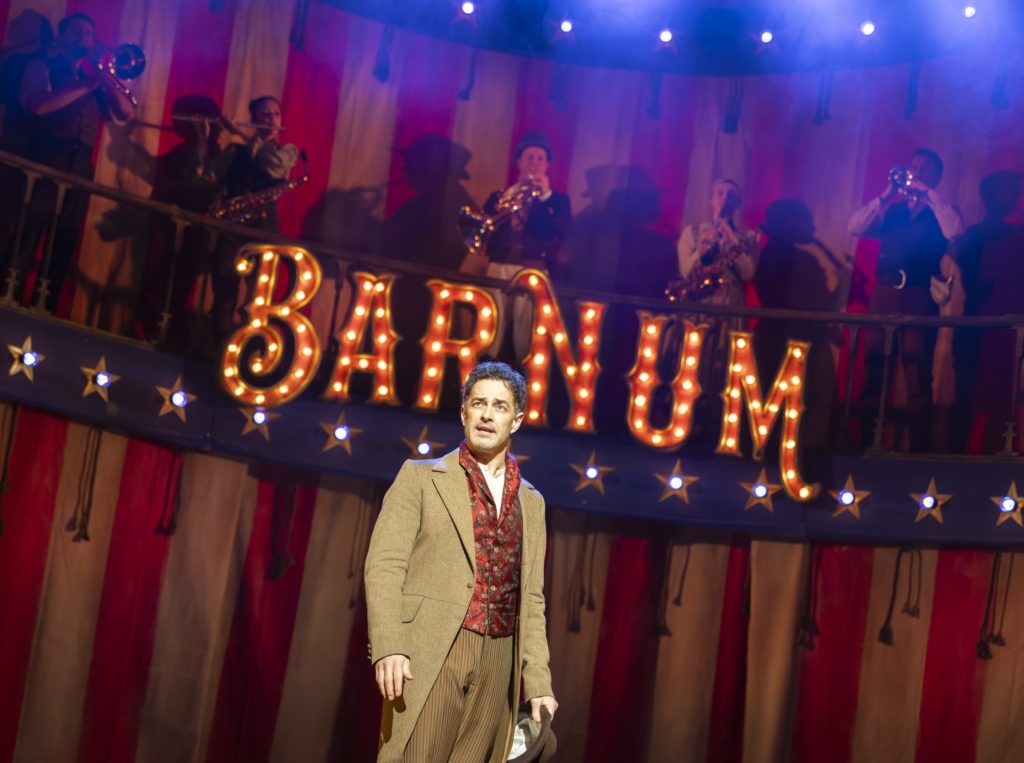
Showman extraordinaire: Lee Mead’s P. T. Barnum in Barnum: The Circus Musical at Grand Opera House, York. Picture: Pamela Raith
Touring musical of the week: Bill Kenwright Ltd in Barnum: The Circus Musical, Grand Opera House, York, February 24 to 28, 7.30pm plus 2.30pm Wednesday, Thursday and Saturday matinees
MUSICALS leading man Lee Mead plays the most challenging role of his career, stepping into P. T. Barnum’s shoes and on to the tightrope as the legendary circus showman, businessman and politician in Jonathan O’Boyle’s touring production of the Broadway musical.
Mead leads the cast of more than 20 actor-musicians (playing 150 instruments), acrobats and international circus acts as, hand in hand with wife Charity, Barnum finds his life and career twisting and turning the more he schemes and dreams his way to headier heights. Box office: atgtickets.com/york.
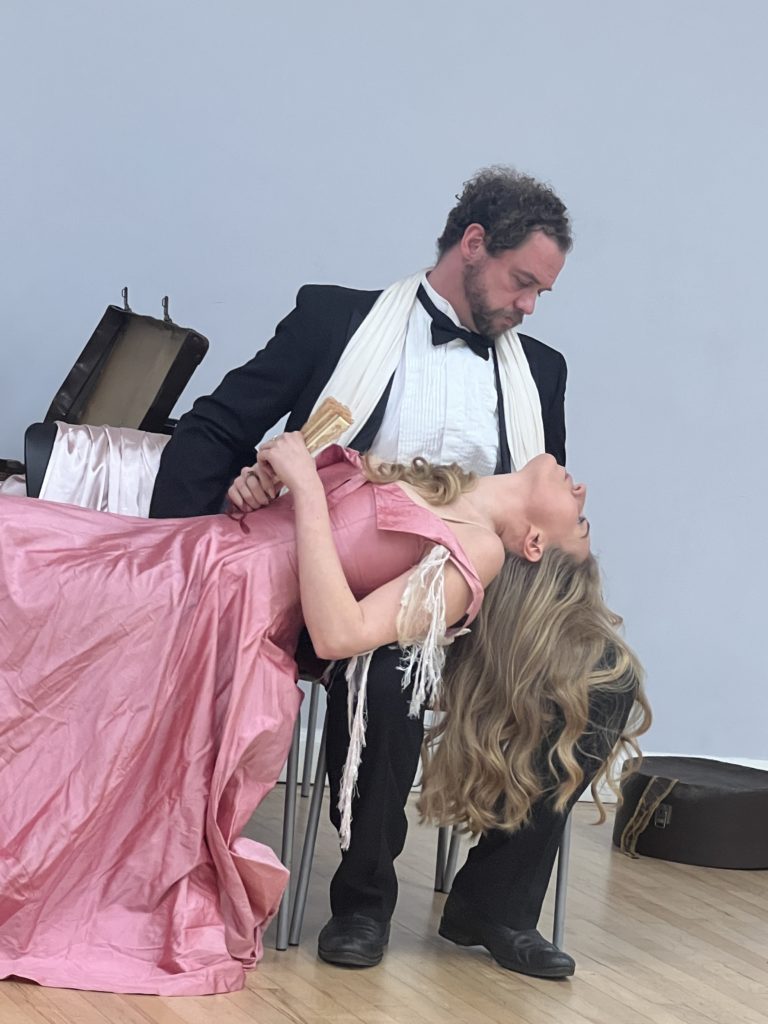
Alexandra Mather’s Anne Egerman and Jason Weightman’s Fredrick Egerman in rehearsal for Wharfemede Productions’ A Little Night Music
Sondheim show of the week: Wharfemede Productions in A Little Night Music, Theatre@41, Monkgate, York, February 24 to 28, 7.30pm plus 2.30pm Saturday matinee
SET in turn-of-the-20th century Sweden, A Little Night Music explores the tangled web of love, desire, and regret through Stephen Sondheim’s signature blend of sophistication, humour and hauntingly beautiful music, not least the timeless Send In The Clowns.
Directed by Helen “Bells” Spencer, Wharfemede Productions’ show combines the North Yorkshire company’s hallmark attention to emotional depth, musical high quality and character-driven ensemble storytelling. Box office: tickets.41monkgate.co.uk.

Disney In Concert: The Sound Of Magic, celebrating music from Walt Disney’s animated films at York Barbican
Movie music of the week: Disney In Concert: The Sound Of Magic, York Barbican, February 25, 7.30pm
THE Novello Orchestra’s Disney In Concert: The Sound Of Magic performance is a symphonic celebration of Disney music, animation and memories, a century in the making, under the direction of creative director Amy Tinkham, music director Giles Martin and arranger and orchestrator Ben Foster.
Favourite characters and music from across the Walt Disney Animation Studios catalogue come to life on the concert hall stage and screen in new medleys and suites on a magic carpet ride through Snow White And The Seven Dwarfs, Moana, Alice In Wonderland, Aladdin, The Jungle Book, Frozen, The Lion King, Fantasia, Encanto, Beauty And The Beast and more. Box office: yorkbarbican.co.uk.
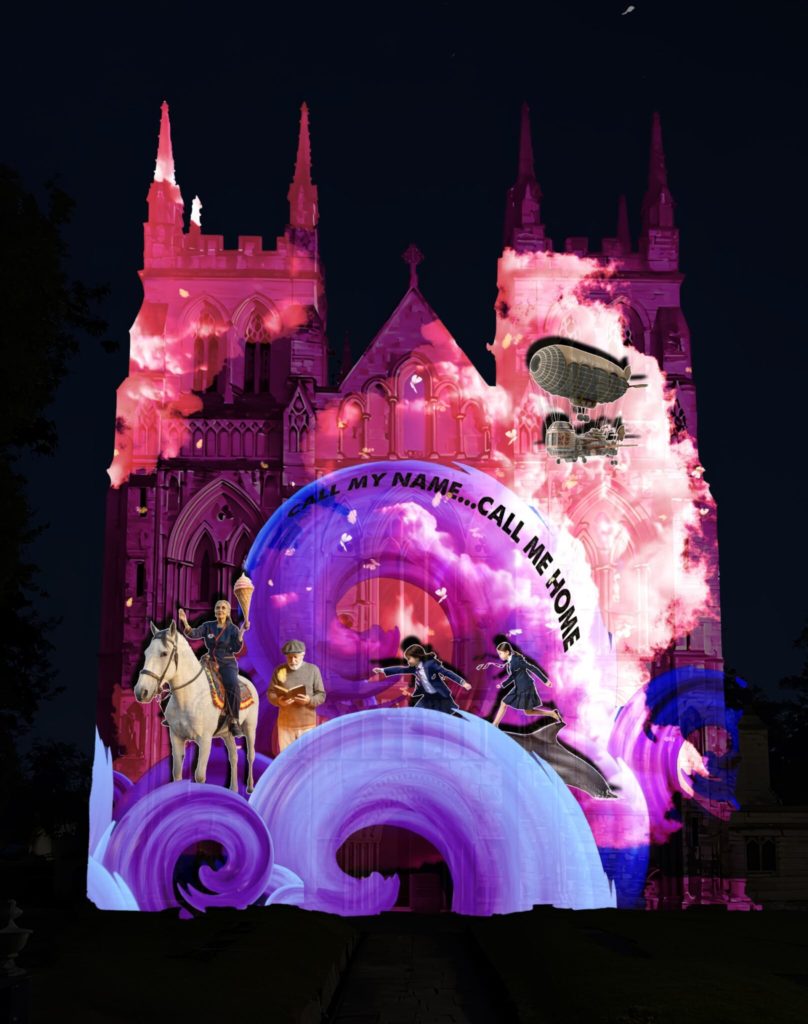
Homeward bound for Selby Abbey: Imitating The Dog’s large-scale installation
Installation of the week: Selby Light 2026, Selby Abbey, February 26 to 28, 6pm to 9pm
SELBY Abbey will be the setting for Homeward, Leeds company Imitating The Dog’s large-scale installation celebrating our different stories and the unified feeling of finding home, framed by the question How Did You Get Here?
Inside, the installation continues as a walk-through experience, complemented by Jazmin Morris’s Through The Liquid Crystal Display, a series of visual code illustrations inspired by Selby Abbey. The trail then extends into the town centre with works by Selby College students. Admission is free.

Phoenix Dance Theatre in Interplay: World premiere opens at York Theatre Royal next Friday and Saturday. Picture: Drew Forsyth
Dance show of the week: Phoenix Dance Theatre, Interplay, York Theatre Royal, February 27, 7.30pm; February 28, 2pm, 7.30pm
LEEDS company Phoenix Dance Theatre’s world premiere tour of Interplay opens at York Theatre Royal next Friday and Saturday, featuring dynamic works by Travis Knight and James Pett (Small Talk), Ed Myhill (Why Are People Clapping?!), Yusha-Marie Sorzano & Phoenix artistic director Marcus Jarrell Willis (Suite Release) and Willis’s Next Of Kin.
Across duet and ensemble works, Interplay explores themes of duality and shared authorship, revealing how distinct artistic voices can intersect to create something greater than the sum of their parts. Each piece offers a unique perspective, united by a bold physicality and a deep curiosity about human relationships, rhythm and collective experience. Box office: 01904 623568 or yorktheatreroyal.co.uk.

Levellers: Levelling The Land anew at York Barbican this autumn
Gig announcement of the week: Levellers, York Barbican, October 29
BRIGHTON folk-rockers Levellers have been among Britain’s most enduring and best-loved bands for nearly 40 years, their success in part built on the anthems that comprised their platinum-selling second album Levelling The Land, whose 35th anniversary falls on October 7.
To mark the occasion, Levellers will head out on a UK and European tour from October 16 to November 21, playing many songs from that album, alongside fan favourites from their extensive catalogue. Hotly tipped Essex punk duo The Meffs will support. Box office: https://www.yorkbarbican.co.uk/whats-on/levellers-2026/.

